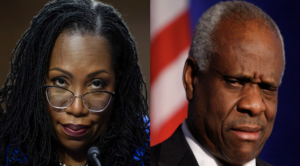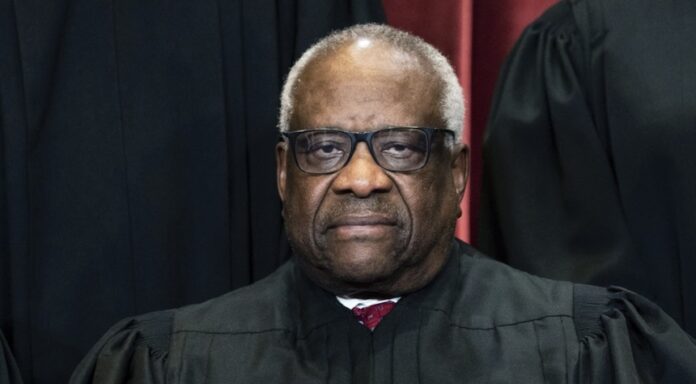The Supreme Court issued a long-awaited ruling on Thursday that affirmative actions are unconstitutional, as they violate the Equal Protection Clause in the Fourteenth Amendment. You can expect that the court was divided on ideological lines. In her dissenting view, Justice Ketanji Brown Jackson – Joe Biden’s pick for affirmative action on the Supreme Court – criticized the majority opinion.
Today, with a “let-them-eat cake” obliviousness the majority announces by law “colorblindness to all”. “But deeming race irrelevant is not the same as making it so in real life,” she said. She said that the Court, having disassociated itself from the actual past and current experiences of this country, has been lured to interfere with the important work UNC and other higher-education institutions are doing in order to solve America’s problems.

She continued, “Ignorance is not a benefit to anyone.” Race still has a significant impact on the lives of Americans, even though formal race-related legal barriers no longer exist. Today’s decision makes matters worse, not better. The majority’s view can only be described as ostrich-like, in that they hope to end racism by avoiding consideration of race.
Jackson has clearly no issue advancing in life on the basis of her color rather than merit. Joe Biden kept his promise to appoint an African-American female to the Supreme Court. He chose someone who may not know what a woman is, but she was chosen nonetheless. She’s just like the usual radical leftist race hustlers, as one would expect. And Justice Clarence Thomas called her out in his concurring opinions.

“Judge Jackson’s race-infused view of the world is a failure at every step.” Thomas wrote that “individuals are the sum total of their unique challenges, experiences, and achievements.” What matters is how people choose to overcome the obstacles they face. Their race is not responsible for all that happens to them, good or bad. “An opposite, myopic view of the world based on skin color and excluding personal choices is nothing but racial discrimination.”
Oh, but the man wasn’t finished yet.
Thomas went on to say that “Justice Jackson builds upon her flawed premise and calls for action by arguing courts should defer ‘experts,’ and allow institutions discriminate based on race.” “Make no mistakes: Her dissent does not represent the helpless and innocent. It’s a call for privileged elites to be empowered, as they will “tell us what is needed to level the field” between castes and classes that only they can discern… After dividing us into castes based on race and pitting them against each other, dissenters believe that, at some point, we can “march forward together” to some utopian vision.

Thomas accused Jackson of relying on race-based stereotypes to support her dissent, and he never appeared to strike a blow to shred Jackson’s dissent.
Though Justice Jackson seems to think that her race-based theory can somehow benefit everyone, it is an immutable fact that “every time the government uses racial criteria to ‘bring the races together,’ someone gets excluded, and the person excluded suffers an injury solely because of his or her race.” Indeed, Justice Jackson seems to have no response—no explanation at all—for the people who will shoulder that burden. How, for example, would Justice Jackson explain the need for race-based preferences to the Chinese student who has worked hard his whole life, only to be denied college admission in part because of his skin color? If such a burden would seem difficult to impose on a bright-eyed young person, that’s because it should be. History has taught us to abhor theories that call for elites to pick racial winners and losers in the name of sociological experimentation.

His response to Jackson concluded, “This vision is self-defeating and results in a never-ending cycle of victimization.” “There’s no reason to keep going down this path. The Fourteenth Amendment was framed in the aftermath of the Civil War. It is a colorblind Constitution that requires that the government, finally, ignore the skin color of its citizens and focus on the individual achievements of each citizen.
Drop the mic, Justice Thomas. You nailed it.










